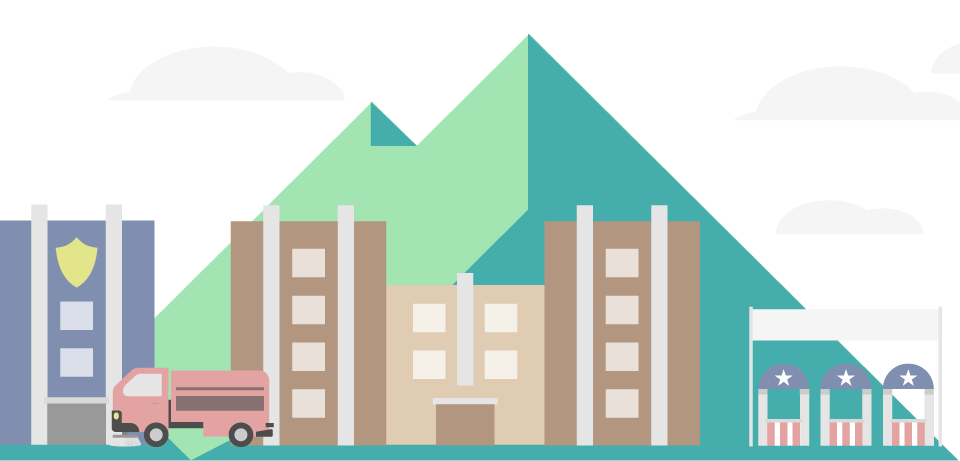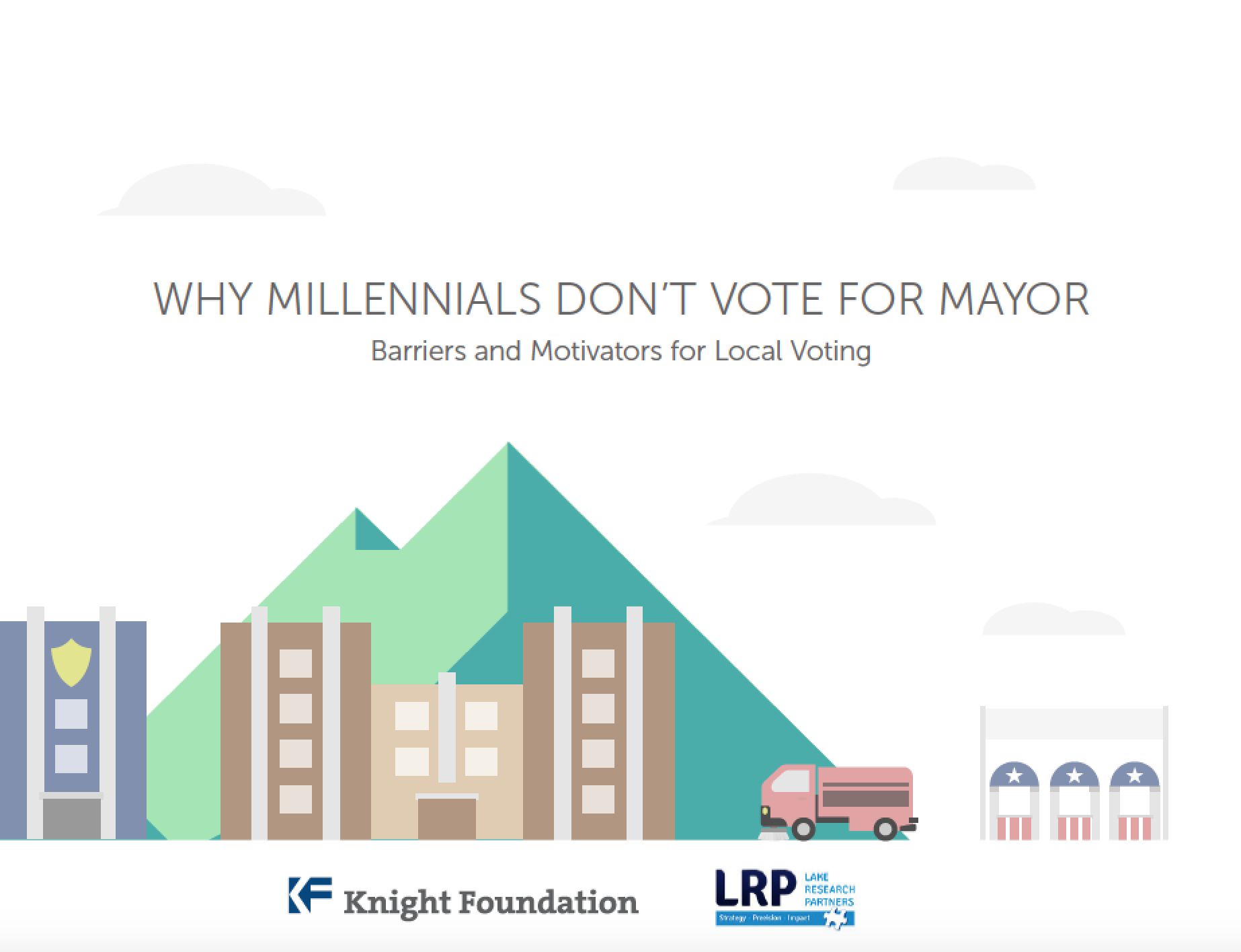
Overcoming the hurdles to why people – especially millennials – don’t vote local
Related Link

Join the conversation
Knight Foundation will host a Twitter chat at 1 p.m. ET on June 11, 2015 to discuss the findings and get public feedback. Follow @knightfdn and use #votelocal to participate.
When I was 7, I remember handing out literature at our polling place on Election Day for Buford Ellington, a Democrat who served as governor of Tennessee. In a seventh-grade class debate, I made the case for Barry Goldwater for president. In high school, I started knocking on doors for City Council candidates. At age 20 I proudly cast my first ballot in a presidential election.
I’ve supported winners and losers, but I’ve never lost my enthusiasm for exercising my right as a citizen to vote.
That’s why it is hard for me to understand why people – especially millennials – don’t vote, particularly in local elections.
Concerned about this growing trend, Knight Foundation commissioned Lake Research Partners to help us learn why. Lake conducted focus groups in three very different Knight cities (Akron, Ohio, Miami and Philadelphia) with “drop-off” millennial voters – millennials who vote in national elections but do not vote in local elections.
What we heard was, at once, disappointing but instructive.
• Millennials don’t feel they have information they can trust about candidates in local races.
• Local elections get far less attention than do national elections, so there is not as much social pressure to participate or news about when elections are occurring.
• They are not certain what local government does, and they don’t believe local government reflects their values.
• Fewer of them seem to be “socialized” into voting as people once were by family members, schooling or traditional institutions.
• Newer residents feel less knowledgeable about local government, local offices, local candidates and local sources of information. (And they don’t have mom to remind them to vote.)
As I thought about how the findings compared to my own (decidedly non-millennial) experience, I found some of it surprisingly familiar. Over the past 10 years, I’ve lived in three different cities. Each time I moved, I had to re-register to vote locally, familiarize myself with a new polling place, juggle travel schedules and plan ahead to make sure I was in town to vote (or arrange to vote absentee), and – by far the most daunting – find a trusted source of information to help me make choices in important but specialized races, such as the selection of judges and ballot initiatives.
Frankly, even after two election cycles in Florida, I am still uneasy and uncertain every time I tackle a ballot.
No wonder would-be voters are confused.
The good news is that participants in the focus groups also pointed to some ways to overcome the hurdles to local voting. The most promising seems to be communicating positive messages that elicit pride in the community and frame the ways voting can tangibly impact important issues. But there must be reliable and powerful ways to communicate those messages.
As a foundation built on the belief that informed and engaged communities are essential for a strong democracy, Knight has an intense interest in finding ways to get people hooked on community. That work spreads across our portfolios: arts, community and national initiatives, journalism and media innovation. We look forward to working with grantees to strengthen the kinds of connection to community that result in greater local civic participation, including voting in local elections.
Carol Coletta is vice president of community and national initiatives at Knight Foundation. Follow her on Twitter @ccoletta, and listen to her “Knight Cities” podcast with civic innovators every week.
Recent Content
-
Community Impactarticle ·
-
Community Impactarticle ·
-
Community Impactarticle ·



